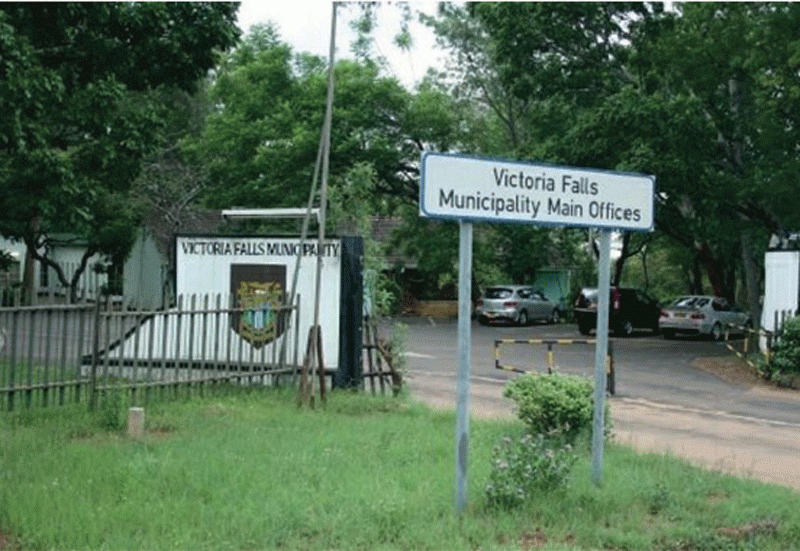
AFTER the Roman senate declared Emperor Nero an enemy of the State and went on to sentence the emperor to death for his abuse of power, the emperor did not wait to be humiliated in public, he committed suicide, so as to eschew public humiliation.
What followed was a dour struggle for power by provincial governors (military generals), who were backed by their soldiers to usurp the office of high esteem.
In a space of nine months, the Roman empire was ruled by three emperors, one lasted two months, the other three months and the third stayed four months. All of them lacked substance to unite the empire. Some failed to restore economic stability as well as law and order in the empire.
I was just reminiscing about these historical events and saw it fit to bring the matter before the nation of Zimbabwe. At this very moment we find ourselves in a political quagmire, yet this military-backed government will suffer setbacks from the grassroots level of the army and they will do away with the top hierarchy, who are in dire need to keep the status quo_Zezai Tinofa
Introduce speed regulators for kombis, buses
ALL passenger vehicles and haulage trucks have stickers indicating their speed limits at the back, why can’t the transport operators just adhere to that? All they want is getting rich without following the regulations.
In Botswana, kombis are given a target of around 350 pula daily and I guess in South Africa and Mozambique it’s around the same range, with Mozambique about US$30, but here in Zimbabwe they want US$100 or more.
The police and Vehicle Inspection Department (VID) and their parent ministries are to blame. If you have the power to regulate and control the transport system and you allow buses to go to and from Mutare-Harare Highway in one day without realising it will cause accidents, then you are not worth occupying those offices.
- Mavhunga puts DeMbare into Chibuku quarterfinals
- Bulls to charge into Zimbabwe gold stocks
- Ndiraya concerned as goals dry up
- Letters: How solar power is transforming African farms
Keep Reading
It is high time these public vehicles and trucks are fitted with speed regulators before they go through VID for fitness.
Also they should introduce heavy fines for offenders._Tonderai Madiro
Diamonds: A blessing or curse?
THE diamonds failed to bail out the economy from the crisis and worse the communities where the precious gems are found are pathetic and underdeveloped. Diamonds failed to transform the lives of communities living above them.
This is a clear footprint of Africa’s developmental challenges, basically caused by either internal or external factors or both.
The internalisation theory suggests issues of leadership crisis, corruption, lack of citizen engagement and lack of intercourse of community-based organisations (CBOs), nepotism, bribery and lack of good corporate governance which include issues to do with the rule of law, transparency, accountability, efficiency and effectiveness, among many domestic challenges.
Corruption corrodes the fabric of society. It undermines people’s trust in political and economic systems, institutions and leaders. It can cost people their freedom, health, money and sometimes their lives.
The Marange community is suffering from the above challenges, empty promises by the government and mining companies in the area.
Instead, the area is suffering in all forms ranging from human rights abuses, dog bites, noise pollution, water pollution, land degradation and death of animals. All these have not been given attention by the responsible authorities.
Kimberly statistics indicate that in 2012 diamonds accounted for over US$700 million in export earnings (https://kimberlyprocessstatistics.org/-statistics), but when you look at the state of the community, it’s unbelievable. The villagers’ poverty levels are now worse. In spite of demonstrations, diamond mining companies have given a deaf ear to the plight of the communities. On November 1, 2018, Centre for Natural Resource Governance, in collaboration with other CBOs, organised a big commemoration held at Betera Primary School. Non-governmental organisations, human rights organisations, the Zimbabwe National Peace and Reconciliation Commission, chiefs and headmen, graced the occasion, but the Zimbabwe Consolidated Diamond Company, Member of Parliament and media outlets could not come to this great event, belittling its importance.
Speaker after speaker talked about government and mining companies’ reluctance in developing or ploughing back to the community. Petitions, demonstrations, mining indabas have been held, but nothing is being done for the community. Instead, the area is declared a no-go area and locals have to get clearance to travel.
I kindly request the government and the mining companies to stop lying to us. We need our fair share of the cake before it’s full time._Citizen
How much has Mwonzora cost us?
MDC Alliance leader Douglas Mwonzora, et al’s project to discredit the Citizens Coalition for Change leader Nelson Chamisa has cost Zimbabwe an arm and a leg. How much?
First there are the legal costs in trying to wrest the true MDC from the grassroot support that the late party founder Morgan Tsvangirai and his followers built since 1999. The court cases were a sham, but still cost a huge amount of money and time.
Thokozani Khupe got the first taxpayers’ funds from the Political Parties Finance Act which should have been allocated to the then Chamisa-led MDC-A that won the 2018 elections, or as the courts would have us believe, the overwhelming opposition vote. What did she do with all that money?
Her party got a paltry amount of the vote. Then Mwonzora got the next tranche of taxpayers’ money from the Zanu PF government after taking over the MDC Alliance from Madam Khupe.
All that staggering amount has all been squandered. On what? His party had no support and was inactive, except in writing letters to Parliament, etc., recalling properly elected Members of Parliament (MPs) and councillors.
How much did the by-elections cost the country/taxpayers? Largely Mwonzora’s party did not contest the by-elections and failed dismally where they did contest. Yet his party continued to recall the voters’ elected MPs and councillors. This left millions of citizens unrepresented by people of their choice for the bulk of the last five years. How much has this cost us in lost development? Impossible to quantify!
We know he has been given a farm and Merc for doing Zanu PF’s bidding, and has been enjoying the fruits of being a lacky in the Political Actors Dialogue.
All in all, Mwonzora, Khupe before him, and their followers have been traitors to the people and the ideals of Tsvangirai and his followers. They appear to have sold their souls for a few pieces of silver. They should forever hold their heads in shame for the continued hardships they have inflicted on the once proud citizens of Zimbabwe._A Mbire
In response to Harare taps run dry, LEVSON DANIEL CHIKWAZA says: And we go around saying we have leaders who care. This country does not have leaders, but looters who are jostling each other to plunder the natural resources. Zimbabwe has been sold to the Chinese.
In response to State of fertiliser industry scandalous, BRIAN KANYANGE says: Once upon a time there was a single company manufacturing clay bricks at US$200 per 1 000. The company enjoyed the whole market share unchallenged for sometime. The government then licenced the Chinese to produce the same product. The price is now US$160 per 1 000. To consumers, competition is healthy. Fertiliser should be manufactured by anyone, Chinese or American. What matters to the farmers is quality and price. Restricting fertiliser production to few locals have seen prices reaching record high in the region.
JUSTICE MASHUNYE says: I find it scandalous that there is no mention of prices in the article, farmers will not just watch fertiliser companies being protected at their own expense. The reality is if you buy local fertilisers at those scandalous prices, you are left in huge debts. Even if fertiliser imports are to be controlled, farmers will simply shun buying expensive local fertilisers.
VICTOR MHUNDWA says: Locally-manufactured fertiliser is very expensive to buy, who can afford it? The government must bring in more players to allow competition because it helps in bringing down prices.
In response to Chevrons target outright win, GERALD MAPHOSA says: The Chevrons should focus more on taking wickets early and stop high scores.






